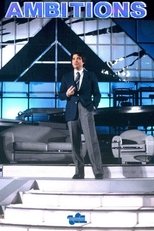
|
|
Alain Madelin (born 26 March 1946) is a French politician. Madelin was minister of Industry in Prime Minister Jacques Chirac's cabinet from 1986 to 1988, a minister of Business in Prime Minister Édouard Balladur's cabinet from 1993 to 1995, and a minister of Economy and Finances in Prime Minister Alain Juppé's cabinet. He resigned after only three months, citing economic policy differences with Alain Juppé. He was a member of the National Assembly from 1978 to 2007 as representative for Ille-et-Vilaine's fourth constituency. The district includes the town of Redon, where he was mayor from 1995 until 2000. Madelin unsuccessfully ran in 1996 for president of the Union for French Democracy (UDF), and was defeated by François Léotard. He was elected as leader of the Parti Républicain, a part of the UDF coalition, which he renamed Démocratie Libérale. In 1998, Démocratie Libérale split from the UDF. Madelin's obtained slightly less than 4% of the vote in the 2002 presidential election and merged his party into the UMP. After 2002, although his former supporter Jean-Pierre Raffarin became Prime minister, and as a result of the end of Démocratie Libérale, Madelin's influence in French national politics dwindled. As a classical liberal, he was a strong supporter of laissez-faire economics and was also a candidate in the 2002 French presidential election as the leader of the Liberal Democracy party, where he scored 3.91% on the first round. Following the election, he became a member of the Union for a Popular Movement (UMP). Madelin is the French major politician the most in favor of the international policies of the United States, and supported the United States-led 2003 invasion of Iraq. Because of this, he has, in the past, generally been considered with favor by the US press. He did not seek reelection in the 2007 elections, ending his involvement in partisan politics. Source: Article "Alain Madelin" from Wikipedia in English, licensed under CC-BY-SA 3.0. |


